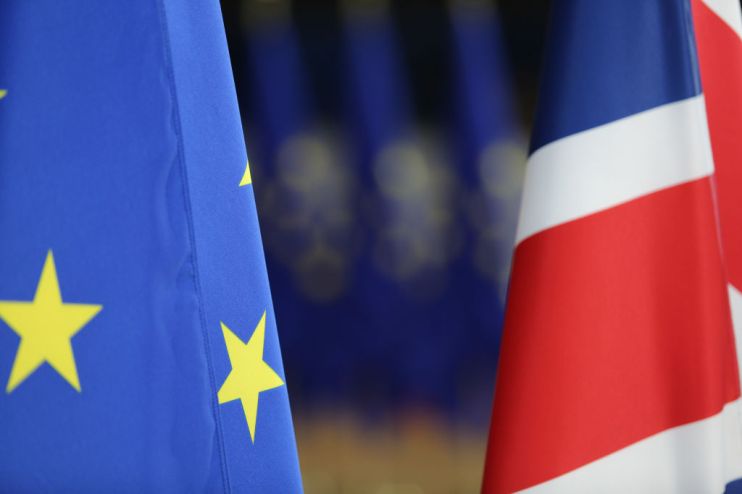Oil prices bounce back as EU considers joining UK and US with Russian energy sanctions

Oil prices climbed over three per cent this morning, as European Union (EU) nations weigh up the possibility of imposing energy sanctions on Russia.
Brent Crude is up 3.38 per cent to $111.60 per barrel, while WTI Crude is up 3.69 per cent to $108.60 – with both major benchmarks highly influenced by rapidly evolving geopolitical tensions and the prospect of future Western sanctions.
US President Joe Biden is set to hold talks this week with NATO allies, Japan, and EU nations in an attempt to harden the West’s response to Russia’s invasion of Ukraine.
This has raised the possibility that the EU could follow in the footsteps of the US and UK and target Russian oil supplies with restrictions.
While prices dipped last week amid negotiations between Russia and Ukraine, the subsequent continuation of conflict has seen raised fears of supply shortages and sanctions.
Commerzbank analyst Carsten Fritsch explained: “In view of the actions of the Russian armed forces in Ukraine, which are increasingly targeting also the civilian population, there is growing pressure on Europe to follow the US lead.”
EU remains split over sanctions
The foreign ministers of EU nations Lithuania and Ireland have today both called for sanctions to be stepped up and to target Russia’s energy sector – with Poland making similar calls last week.
However, Dutch Prime Minister Mark Rutte has warned the EU is still highly dependent on Russian fossil fuels and could not cut itself off by tomorrow.
German Foreign Minister Annalena Baerbock said “the pictures that reach us from Ukraine are heart-breaking”.
While declining to commit to sanctions on Russia’s energy sector, she said: “This makes it even clearer that the EU, that the world that believes in a rules-based order, has to isolate this regime.”
The bloc currently relies on Russia for around 30 per cent of its oil needs – raising the prospect of fuel shortages if it is unable to find alternative suppliers.
Over recent weeks, the EU has been scrambling with the US to find alternative buyers – with Germany reaching a long-term gas supply deal with Qatar yesterday.
However, the latest reports from Bruegel and UBS suggest that cutting of Russian oil and gas would require reductions in consumption demand and significant consumer behavioural changes- raising the prospect of rationing over the winter.
The International Energy Agency (IEA) also warned last week that 3m barrels per day of Russian oil could be excluded from the market – leading to supply difficulties from the second quarter of this year.
It has since published a report outlining ways to cut oil use by 2.7m barrels per day to halve global dependency on Russia – from car-free Sundays in cities to fewer business flights.
Geopolitical tensions exacerbate OPEC+ shortages
Alongside the conflict in Ukraine, markets remain tight with the Organisation of the Petroleum Exporting Countries and its allies (OPEC+) persistently failing to hit raised production targets.
This has been exacerbated by a Houthi attack on a Saudi energy terminal, raising concerns of a structural shortfall in production from OPEC.
Ricardo Evangelista, senior analyst at ActivTrades said: “Market jitters weren’t helped by an attack on a Saudi oil terminal this weekend, claimed by Houthi rebels, which caused a temporary drop in output.”
Meanwhile, OPEC+’s latest report revealed some producers are still falling short of their agreed supply quotas.
OPEC+ missed its production target by more than 1m barrels per day in February, three sources told news agency Reuters, despite its pledge to boost output by 400,000 barrels per day each month.
The two OPEC countries with the capacity to instantly raise output, Saudi Arabia and the United Arab Emirates, have so far resisted calls from major consuming nations to step up production faster to help drive down oil prices – despite Boris Johnson’s visit to the Gulf last week and persistent calls from Biden to boost supplies.